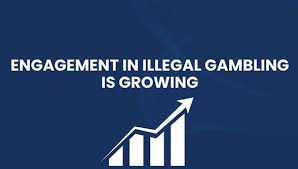
The Economic Costs of Illegal Gambling
Gambling has long been a controversial issue in Pakistan, with most forms of it being illegal under the country’s strict religious and cultural laws. However, despite these restrictions, gambling continues to thrive in underground markets, particularly through illegal betting on sports like cricket and football. This unregulated gambling market is estimated to contribute a significant amount to the economy, but it also brings with it numerous economic challenges. The lack of taxation on this underground sector means that the government misses out on potential revenue that could be used to fund public services such as education, healthcare, and infrastructure. Additionally, illegal gambling contributes to money laundering and other criminal activities, further complicating the economic landscape.
The Potential Benefits of Legalized Gambling
On the flip side, some experts argue that legalizing gambling could offer economic benefits for Pakistan. By regulating gambling activities, the government could introduce a framework for taxation and create a legitimate gambling industry that would generate revenue. Legalized casinos, sports betting, and online gaming platforms could attract both local and international tourists, boosting Pakistan’s hospitality and tourism industries. Moreover, the revenue generated from legalized gambling could be used to fund development projects, healthcare programs, and education initiatives, ultimately contributing to the country’s economic growth. Countries with regulated gambling industries, such as the United States and parts of Europe, have seen billions in tax revenues from casinos, online gaming, and sports betting.
Social Costs: Gambling Addiction and Financial Instability
Despite the potential economic benefits, gambling also presents significant social costs, particularly in terms of addiction and financial instability. As gambling becomes more accessible through online platforms and mobile apps, a growing number of Pakistanis, including young people, are developing gambling addictions. These addictions can lead to financial ruin, mental health issues, and strained family relationships. Many individuals who struggle with gambling addiction end up deep in debt, and their inability to pay off loans or cover living expenses can cause a ripple effect in their communities. In this sense, while gambling could theoretically bring economic gains, it also has the potential to undermine the financial stability of individuals and families, contributing to greater social and economic inequality.
The Impact on the Formal Economy
The growth of illegal gambling in Pakistan also has a negative impact on the formal economy. Many people who engage in illegal gambling activities are using disposable income that would otherwise be spent on goods and services within the formal economy. This diversion of funds away from legitimate businesses can stifle the growth of local industries and retailers. Additionally, money spent on illegal gambling is often siphoned off by criminal syndicates or offshore platforms, meaning that it is not reinvested into Pakistan’s economy. If gambling were legalized and regulated, it could help funnel this money back into the country, ensuring that it contributes to local economic development rather than being lost to criminal activities.
The Need for Regulation and Policy Reform
Given the complex economic and social implications of gambling in Pakistan, there is an increasing call for comprehensive regulation and policy reform. Legalizing and regulating gambling could help mitigate some of the negative effects while also harnessing its economic potential. However, it is essential that the government addresses the risks associated with gambling addiction and ensures that any legal framework includes measures for responsible gambling. This could involve setting up addiction treatment programs, implementing strict age restrictions, and creating awareness campaigns to educate the public about the risks of gambling. By creating a balanced approach, Pakistan could minimize the negative impacts of gambling while maximizing its economic benefits, ensuring that the sector contributes positively to the nation’s future growth.
Stay alert to your opponent’s moves in Rummy


